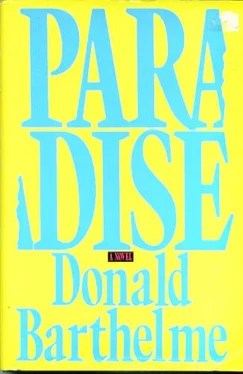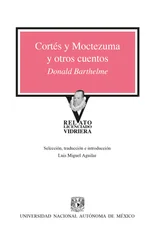“How about coming to New York? I have a place you’d like. Needs furniture. We could go out and buy a lot of furniture.”
“I don’t want to buy any more furniture,” his mother said. “I like it here. I’ll have to see how it feels. If I need you I’ll call you, rely on it.”
“Nothing more fun than buying furniture.”
“I agree. But it has to be going toward something.”
Nothing to say to that.
His father had been a lumberman, a prophet of redwood. Redwood was light, easily milled, plentiful, took a stain well, weathered beautifully. Tens of hundreds of thousands of board feet of California redwood had passed through the family’s logging and milling operations, his father not the biggest lumberman in the state, but not the smallest. Simon remembered odd moments: putting a huge dollop of Worcestershire sauce on a hamburger in a restaurant and his father telling him, “Don’t do that, son, it whips up the body.” Sitting by the radio in 1938 listening to the second Louis-Schmeling fight, sitting by the radio all night long in 1939 listening to accounts of the German invasion of Poland. When Simon had been expelled from USC, before he went to Penn, he had come home and told his father about it, and his father’s only comment was, “What are we going to tell your mother?” The death of the father is supposed to release a burst of new creative energy, he remembered. He felt nothing but sadness and admiration.
Back in New York he receives a notice for jury duty. How can this be? He’s not registered to vote. Nevertheless he dutifully hauls himself down to 6 °Centre Street one Monday morning. The benches on the fifteenth floor of the Criminal Courts Building are filled with readers. He spots at least twenty paperback copies of le Carre’s The Little Drummer Girl, which he himself has read and greatly enjoyed. He falls into conversation with a young woman who is, he learns, the editor of a trade journal dealing with lingerie. She’s knitting furiously, a sleeveless sweater, as she talks. “We make nine hundred thousand a year for the company, profit,” she says. “Can you believe it?” She produces fourteen issues a year, with each issue running to ninety-six pages of editorial and God knows how many of ads. “It’s hard to think of things to feature after a while,” she confesses. “How many ways of bifurcating breasts are there? We take a lot of clues from the artists. Memphis is in now, spatter and clatter.”
The lingerie editor tells him that her assistant is a berserko and that it’s impossible to get good subordinates these days. Simon, empaneled, is knocked off a murder case, empaneled again, is knocked off a rape case. “The defendant is accused of sexual misconduct,” the blond woman judge tells the jurors. “Will the defendant stand up so that the jurors can see him?” The defendant stands and almost involuntarily takes a little bow. When the attorneys, questioning Simon in the jury box, ask him what he is, he says he is an architect. At the lunch break on the third day, he meets, in a cluster of fast food stands in a little park near the courthouses, a red-haired woman who says she is a poet.
The three women looked for jobs but were turned down by Bendel, Bergdorf, Bloomingdale’s, Lord & Taylor, Charles Jourdan, Ungaro, Altman’s, Saks, Macy’s. They tried all the modeling agencies, starting with Ford and working their way down the list. Simon designed and had printed composites for them and they left these at every ad agency of any size in the city. They applied for substitute teacher positions but found this a closed shop, they needed New York State credentials which they didn’t have. In a moment of desperation they filed applications for the Fire Department but were told they were so far down on the list that they had no reasonable hope of consideration before 1999, when they would be too old to begin training.
Anne and Veronica are fighting.
“Stupid bitch!”
“Asshole!”
“C’mon, guys,” Simon says. “What’s the deal?”
“She’s a motherfucker and a dumb motherfucker,” Anne says. “Crummy cheapo slut.”
“Look who’s talking,” Veronica says, jumping out of Anne’s reach. “Miss Cunt of 1986.”
“What’s this about? What’s the issue?”
“Simon you’re so fucking reasonable,” Veronica says, sitting down on the couch.
“I say, what’s going on?”
“She got us a job,” Anne says.
“Terrific,” says Simon. “What’s the job?”
“Convention. The National Sprinkler Association. At the Americana. We have to stand under these things and get sprinkled. I won’t do it.”
“What if they gave us raincoats?”
“It’s not raincoats they want to see.”
“What if I said transparent plastic raincoats?”
“I might do it with transparent plastic raincoats.”
“I’ll call the guy and see what he says. It’s two hundred each.”
“Raincoats and body stockings.”
“No thrill in body stockings.”
“Let them use their vile imaginations.”
“I just feel like a body.”
“What in God’s name do you think they want?”
“I know, I know.”
“Look at it this way,” Simon says. “A body is a gift. A great body is a great gift.”
“All I need. A Unitarian minister.”
“You don’t have to take the job.”
“We don’t have any money.”
“You want me to make a little pile of money and burn it right here on the floor? There’s enough money around. Take it easy. Wait until you find something you want.”
“We’re concubines.”
“You can make everything sound as terrible as you want,” Simon says. “I’m going to bed.”
“Who with?”
Simon’s wife’s lawyer’s letter arrives and outlines her demands: She wants full custody of the child, the Pine Street house, both cars, sixty-five thousand dollars a year in alimony, child support at a level consonant with the child’s previous style of life, fifty percent of all retirement funds, IRA, Keogh and the firm’s, fifty percent of his partnership interest in the firm in perpetuity, and fifty percent of all odds and ends of stocks, bonds, cash and real property not subsumable under one of the previous rubrics. The client has been severely damaged in all ways by Simon’s desertion and the years of fiendish abuse that had preceded it, the letter suggests.
“What are you going to do?” Veronica asks.
“Give it to her, I guess.”
“Were you really that bad?”
“He may be overstating it a bit.”
“We are pure skin.”
Simon meets the poet at the International Arrivals Building, holding one hand behind him. The nine-hour Finnair flight from Helsinki has been exhausting, but she has met A, B, C, and D — Russian poets so fabulously gifted that none of them has been allowed to publish so much as a weather report. “That’s terrific,” he says. “You look beautiful.” “They all speak English,” she says, “this half-misunderstood English which is three times as good as regular English.” She notices that he is holding something behind his back. “What’s that?” He produces a large, naked steak, a steak big as a Sunday Times. She is embarrassed and pops the steak into her canvas carryall. “I don’t get your metaphor,” she says in the cab. “Is it hunger?”
She’s right, it is hunger. Don’t tell her.
They sit in her kitchen. “The burning barns in your poems,” he says, “why so many? Isn’t that a little… repetitive?” “My burning barns,” she says, “my splendid burning barns, I’ll burn as many barns as I damn please, Pappy.” He is older than she is, by ten years, and she has given him this not altogether welcome nickname. She looks absolutely stunning, a black three-quarter-length skirt embossed with black bird figures, a knitted sleeveless jacket, a yellow long-sleeved blouse, a red ascot. “Seriously, do you think there are too many? Barns?” It’s the first time she has asked his opinion about anything connected with her work. “I was half teasing,” he says. “But they did burn,” she says. “Every one I’ve ever known.” “Simon says,” Simon says, “Simon needs a beer.” She rises and moves to fetch a St. Pauli Girl from the refrigerator.
Читать дальше












